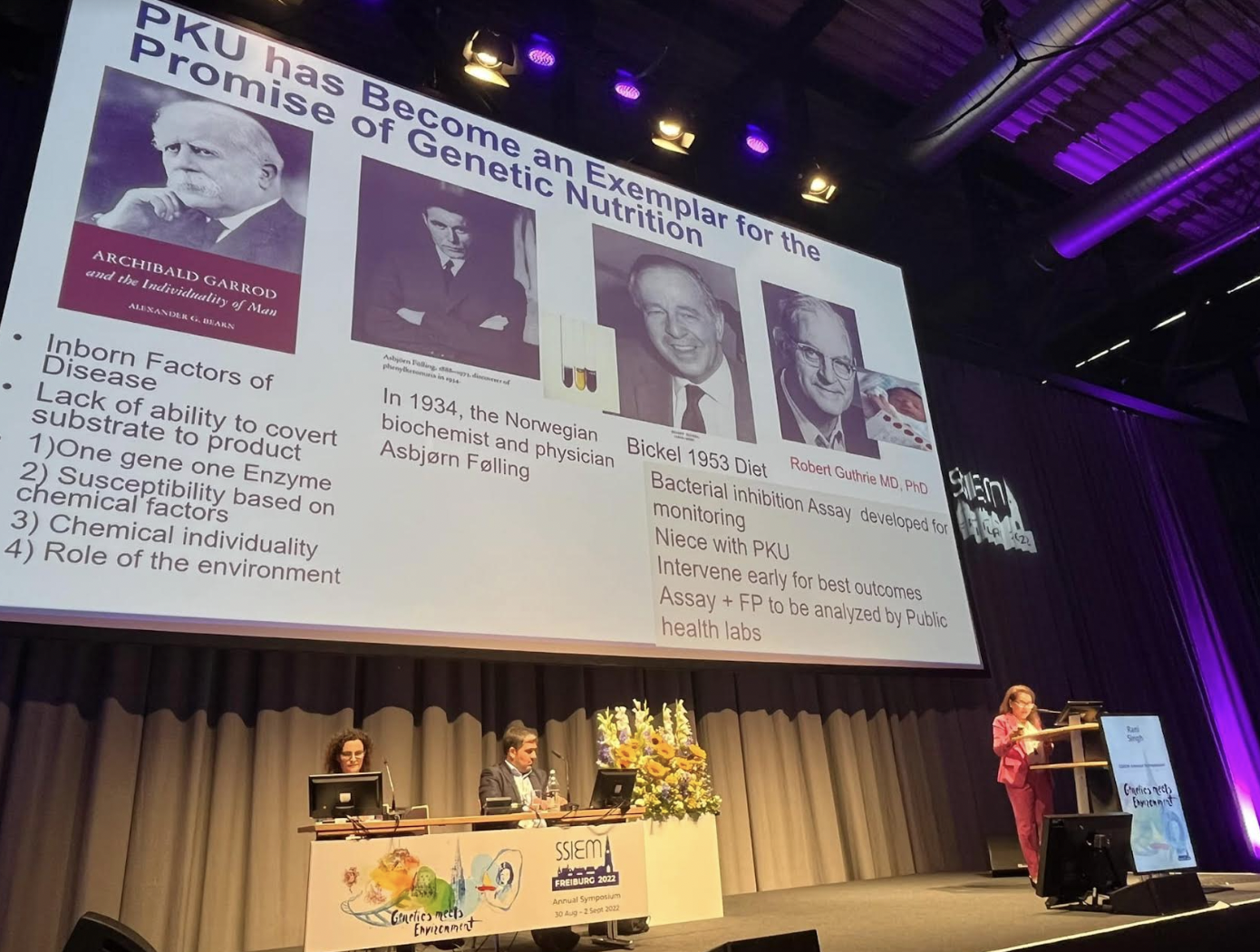September is Newborn Screening (NBS) Awareness Month
Society for the Study of Inborn Errors of Metabolism (SSIEM) Annual Symposium is organized every year by Society for the Study of Inborn Errors of Metabolism (SSIEM) and is dedicated to inherited metabolic diseases.
Symposium 2022 this year was held in person in Freiburg, Germany and hosted about 4.000 delegates from different countries, including Georgia.
Nazi Tabatadze the pediatrician of MediclubGeorgia attended the symposium. Dr. Tabatadze is the founder of GSEIM and a member of SSIEM and ISNS - International Society for Neonatal Screening.
ISNS seeks to advance screening for neonatal and infant sicknesses and disorders, worldwide and supports countries including Georgia in developing newborn screening program.
In turn GSIEM - Georgian Society for Inborn Errors of Metabolism (https://gsiem.ge/) actively involved in raising awareness about newborn screening and metabolic genetic disorders in Georgia.



Newborn Screening is an essential preventive care process, which involves testing newborn babies for a number of rare disorders. Newborn Screening is unique in that babies are being tested for disorders before symptoms have a chance to occur.
Without Newborn Screening, rare genetic disorders frequently go undiagnosed, which can lead to serious disability or even death if not treated quickly.
Millions of babies are screened each year in the United States and In the EU.
1 in 1.750 newborns born with a disorder.
For decades, Newborn Screening has seen worldwide success as a healthcare program for children detecting inherited metabolic diseases to facilitate early treatment.
Most of the conditions included in newborn screening can cause serious health problems if treatment is not started shortly after birth. Prompt identification and management of these conditions may be able to prevent life-threatening complications.
Newborn blood spot screening, the method by which inherited and metabolic disorders are tested in newborns, involves a small prick on the baby's heel and a few drops of blood placed onto a screening card.
First introduced by Robert Guthrie in the 1960s to screen for phenylketonuria, NBS is now performed in many countries in the world, all US states and almost all European countries. Where newborn screening is available, the number of disorders included in NBS panels varies (from one to over 50).
Since the turn of the century, high-throughput screening techniques as well as the increase of possibilities for treatment led to expansions of the screening programs in many countries. Screening, leading to early diagnosis and treatment, will always be beneficial.
In Georgia newborn screening program includes 3 disorders: Phenylketonuria, Congenital hypothyroidism and Cystic fibrosis.
This year expanded newborn screening program was implemented In several maternity houses in different regions of Georgia. It is a great chance for the newborns and children to be screened for additional rare diseases. Expanded newborn screening program detects up to 50 disorders in newborns from just a few drops of blood. ARCHIMEDlife – a Medical Laboratory in Vienna, Austria supports Georgia in this expanded NBS project.

